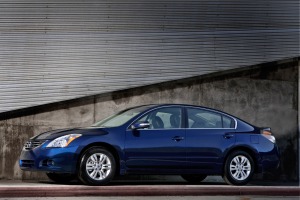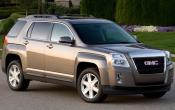With the rise in popularity of certified used or "certified pre-owned" vehicles, many used car ads seem to tout the "certified" name without really living up to the promise of a car that is backed by the manufacturer with an impressive warranty and top-notch dealership experience. One typical scenario is that a used car dealer will advertise a car as "certified" and then sell the customer an extended warranty at an additional cost. There's nothing really wrong with that, but it is important to point out that a customer who buys an extended warranty is not buying a true certified pre-owned vehicle. Certified pre-owned vehicles must pass a rigorous inspection (determined by the manufacturer) and meet strict limits in terms of mileage and condition. On the other hand, an extended or aftermarket warranty can be purchased for virtually any car. While there are no guarantees in life, buying a certified pre-owned car can seriously lessen the risk inherent in buying a used car.
The terms "extended warranty" and "aftermarket warranty" are actually misnomers, since, in the strictest sense of the word, these aren't warranties at all. Like warranties, they cover repairs and/or regular maintenance for an agreed-upon period of time. However, true warranties are included in the price of the product; extended warranties are really "service contracts," since they cost extra and are sold separately.
A service contract can be purchased at the time you buy your vehicle, though it's also possible to purchase one much further along in your ownership experience. If you're the type who likes to be prepared for all eventualities, an extended warranty may be just what you're looking for. But keep in mind that an extended warranty or service contract is only meant as an insurance policy and may not be as convenient as purchasing a certified pre-owned car that is already in good condition.
Here are some things to keep in mind when considering purchasing an extended service contract:
- To what extent is your vehicle already
under warranty, and is this coverage in sync with how long you anticipate owning it? If the car
you've just bought is new, take a close look at its factory warranty before making an extended service
contract decision. If, for example, the vehicle has a factory warranty of four years or 50,000 miles
(typical for many luxury brands), and you plan on keeping it for two or three years — with an
anticipated annual mileage of 12,000 to 15,000 — then an extended warranty makes little sense,
since you'll be covered under the manufacturer's plan. However, if you plan on keeping the car long after
the factory warranty expires, an extended warranty is worth considering. If the car you've just purchased is
used, you'll need to find out if there is warranty coverage from the dealership (coverage periods may range
from as little as a month to up to a year, or more). If you're buying a late-model used vehicle, it's
possible that the vehicle's original factory warranty is still in effect. Certified pre-owned programs offer
the remainder of the original warranty, and then add extra coverage once the factory warranty runs out. With
a certified used car, your car will continue to be covered by the manufacturer of the car — you
will not have to do anything different after the original warranty runs out and the certified warranty
begins.
- What's the reliability record of the model you're purchasing? Take a look at the reliability history of the model you're buying. Though this is by no means a fail-safe
way of predicting what your future repair bills will look like, it does give you an idea of what you may be
in for service-wise. Bear this information in mind when making a warranty decision. Again this is where a
certified pre-owned car is really worth considering, as cars that are deemed unacceptable risks are simply
not allowed to receive the "certified" seal of approval.
- Who is behind the
warranty that you're considering? An extended service contract may be backed by an independent
company or by the covered vehicle's manufacturer. Knowing who will be underwriting your policy can give you
insight into the strengths and weaknesses of the contract you're considering. Manufacturer-backed warranties
score very highly when it comes to ease of use. However, aftermarket warranties are often cheaper.
Purchasing a certified pre-owned vehicle is an easy way to get around this decision — you can be
sure the vehicle's manufacturer stands behind the car and the cost of additional factory warranty coverage
is built right into the purchase price.
- Is there a deductible? Make sure that you fully investigate an extended warranty program's deductible before signing on the dotted
line. Consider not only its amount, but also whether it's "per visit" or "per repair." With a "per visit"
deductible, each visit to the shop will run you a fixed amount, regardless of how many parts are repaired. A
"per repair" deductible applies to each serviced part. What sounds like a minor difference may, under
certain circumstances, have a major impact on your wallet. If, for example, you've got a $100-per-repair
deductible and you take your car in to get the air conditioner, fuel pump and alternator serviced, you'll be
out $300; had you opted for a "per visit" deductible, those repairs would only have cost you $100. This
differs vastly from certified used programs that typically have no deductible for repairs made under the
extended factory warranty coverage. Brands like Audi and BMW do have a deductible, but at just $50, it will
hardly be the financial burden an extended service contract can be.
- What
exactly is covered? Know what's covered — and what's not covered — by the
warranty you're considering. Does the contract cover breakdown as well as wear and tear? Under a "breakdown"
warranty, coverage is extended only to parts that break. Such a policy can prove less inclusive than is
desirable, since not all parts fail due to breakage. Some need to be replaced because they've worn down over
a period of time; a "wear-and-tear" warranty extends coverage to worn-down parts in need of replacement.
Additionally, some "entry-level" contracts don't cover antilock brakes (ABS), so if your vehicle has this
feature, you should consider upgrading to this level. Finally, overheating — regardless of its
cause — isn't covered by many extended warranties. Thus, if overheating occurred due to problems
with an expensive part like your radiator, you'd be stuck with a hefty repair bill. Before committing to a
warranty, take the time to fully explore the ins and outs of its coverage implications. The distinctions
between the various plans might seem slight, but they can prove quite important.
- Is a cash layout required for repairs? Some extended service contracts require that you pay the
bill, then send the receipt in and wait for reimbursement; in many cases, months elapse before you get your
money back. Ideally, you'll want a warranty that pays the dealership directly with a credit card. Certified
pre-owned programs come with an actual factory warranty, and you'll be out only the dollar amount of the
deductible (if there is one). Most certified pre-owned programs allow for you to take your car to any
factory-authorized dealership for your brand of car.
- Out-of-town expenses. Many certified pre-owned programs, such as those from Ford, Dodge, Lexus and Volvo, offer reimbursement for costs incurred as a result of a breakdown when you are away from home. Things such as hotel rooms, rental cars and even meals are covered under many certified pre-owned programs. Additionally, some services offer trip routing services similar to what is offered by AAA to its members.
Also, take into account the recent demise of some extended service contract providers, and it's easy to see why buying a certified used car instead of a regular used car makes a lot of financial sense. Many extended service contract customers have been left out in the cold when the contract provider goes out of business, leaving them with a broken car and no way to pay for it. Plus, they are out the original purchase price of the service contract, which can often be more than $1,000.
Of course, all cars — even the certified pre-owned variety — will require an increasing number of repairs as they age, but you can bet that companies like Toyota and General Motors will not be going out of business in the near future. And because they want you to be a repeat customer, they have much more of a vested interest in keeping you happy.




